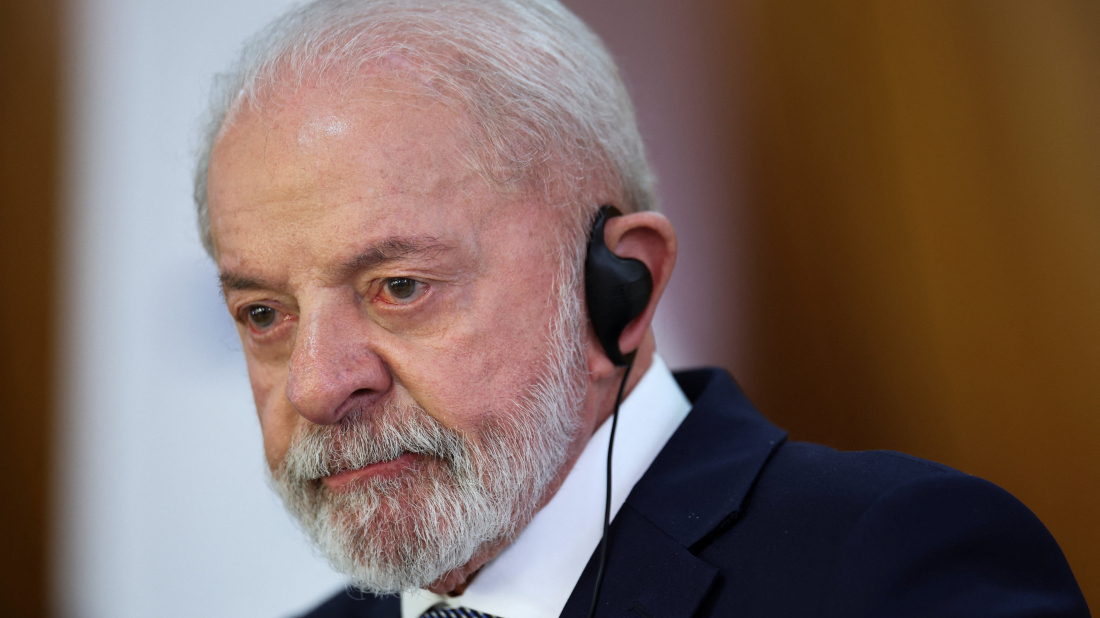The White House: U.S. ground troops ‘not part of plan’ in Iran
The White House says deploying United States ground troops in Iran is not currently part of the military strategy in ...

Brazilian President Luiz Inácio Lula da Silva said on Friday that his government is considering reciprocal tariffs on U.S. goods after Washington imposed a 50% duty on Brazilian imports earlier this month.
“This is a process that takes some time,” Lula told Rádio Itatiaia. “We have to tell the United States that we also have actions we can take against them.”
The move would mark the first test of Brazil’s new reciprocity law, unanimously approved by Congress in April. The legislation authorizes the government to adopt retaliatory measures against unilateral trade actions deemed harmful to Brazilian competitiveness.
The Chamber of Foreign Trade (Camex) has 30 days to decide on a response. If approved, trade specialists will draft proposals, with Brazil’s Foreign Ministry formally notifying Washington during the process.
U.S. President Donald Trump justified the tariff, which took effect on Aug. 6, as a political measure, citing what he described as judicial persecution of former Brazilian president Jair Bolsonaro. Bolsonaro, who governed from 2019 to 2023, faces multiple investigations, including allegations that he sought to overturn the 2022 election won by Lula.
Despite the standoff, Lula said he remains open to dialogue. “I’m not in a hurry. What I want is to negotiate,” he added. Brazil has already filed a complaint with the World Trade Organization (WTO).
The United States maintains a trade surplus with Brazil. Bilateral trade in goods and services reached nearly $127.6 billion in 2024, up from the previous year.
U.S. President Donald Trump said the U.S. military has enough stockpiled weapons to fight wars "forever"; in a social media post late on Monday. The remarks came hours before conflict in Iran and the Middle East entered its fourth day.
U.S. first lady, Melania Trump chaired a UN Security Council meeting on children and education in conflict on Monday (2 March), a move criticised by Iran as hypocritical following U.S. and Israeli strikes that triggered a UN warning about risks to children.
A torpedo from a U.S. submarine sunk an Iranian warship off the coast of Sri Lanka, U.S. Secretary of Defense, Pete Hegseth told reporters as the Iranian conflcit entered its fifth day on Wednesday.
The U.S. embassy in Riyadh was hit by two drones resulting in a limited fire and some material damage, the kingdom's defence ministry said in a post on X on Tuesday, citing an initial assessment.
Shahid Motahari Sub-Speciality Hospital in northern Tehran and parts of the Golestan Palace were bombed on day two of the U.S.‑Israel strikes. AnewZ Touraj Shiralilou is in Iran's capital city and said that the facility was flattened in an airstrike.
A U.S. submarine strike sank an Iranian warship off the coast of Sri Lanka, leaving at least 80 dead, the country’s deputy foreign minister said. Meanwhile, Iran postponed the funeral of its late Supreme Leader Ali Khamenei, according to state media.
The election of Iran’s next supreme leader could provide an opportunity to end the ongoing regional war involving Israel, the U.S. and Iran, Türkiye’s Foreign Minister Hakan Fidan has said.
The U.S. Department of Defense has released a video of a submarine strike on an Iranian warship off the southern Sri Lankan coast. At least 80 people died in the U.S. attack on the vessel, Sri Lanka's Deputy Foreign Minister said.
Rising tensions in the Middle East are beginning to affect Kazakhstan’s economy and citizens, disrupting grain trade across the Caspian Sea and prompting the evacuation of hundreds of Kazakh nationals from several countries in the region.
Azerbaijan’s President Ilham Aliyev highlighted the country’s expanding gas exports to Europe and its renewable energy ambitions during the Southern Gas Corridor Advisory Council’s 12th Ministerial Meeting and the Green Energy Advisory Council’s 4th Ministerial Meeting in Baku on Tuesday (3 March).
You can download the AnewZ application from Play Store and the App Store.

What is your opinion on this topic?
Leave the first comment